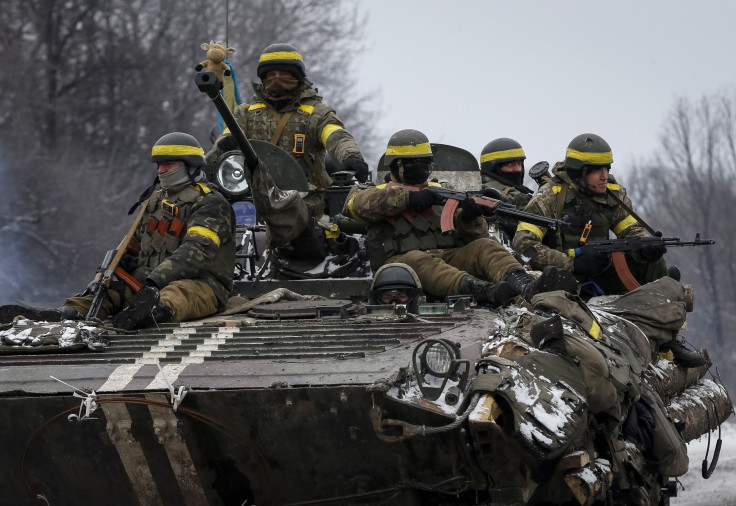Pro-Russian Rebels Still Firing As Ukraine Withdraws Heavy Weapons

The Ukrainian military began withdrawing its heavy weapons from the front lines Thursday, 11 days after a ceasefire with Russian-backed rebels came into effect and mandated that heavy artillery be moved back. The withdrawal comes amid reduced shelling across the east of the country, although the rebels have continued to attack villages near the port city of Mariupol.
"This is the first step towards the withdrawal of heavy weapons, and it will be carried out exclusively under the monitoring and verification of the OSCE observers," said the Ukrainian Defense Ministry on Thursday. "If the militants attempt to attack, the schedule for the withdrawal of heavy weapons will be adjusted. The Ukrainian armed forces are in full readiness to defend the country."
After the ceasefire was signed on Feb. 12, fighting intensified in the strategic city of Debaltseve as pro-Russians made a last grab for territory before fighting was due to stop on Feb. 15. Ukrainian troops withdrew from the city under intense shelling from rebels on Feb. 18. But that was not an end to hostilities, as fighting moved south to Mariupol and Donetsk.
But fresh hope for a lasting ceasefire emerged Wednesday when Ukrainian authorities reported zero deaths over a 24-hour period.
In accordance with the ceasefire, Ukrainian heavy artillery must move between 50km and 140km (30 to 85 miles) from the contact line, depending on the type of weapon. The separatist militia has to move its weapons a similar distance, but from the contact line as decided in September’s failed ceasefire.
It’s yet to be seen if the ceasefire will hold, especially given reports of shelling in the village of Shyrokyne on Wednesday. "Russian-backed militants also fired mortars and small arms twice on the positions of the Ukrainian army near the village of Chermalyk," said Valeriy Chaliy, an aide to Ukrainian President Petro Poroshenko.
Poroshenko has called for U.N. peacekeepers to be deployed to eastern Ukraine. But Ukraine’s U.N. Ambassador Yuriy Sergeyev said any such move may take up to six months of negotiations.
"As stipulated in the Charter of the United Nations, in particular, Article 51 of the U.N. Charter, we have the right to address any country or group of countries with an assistance appeal,” Sergeyev said. “But at the same time, we're not just inviting them, but want them to operate under the auspices of the United Nations. Traditionally, it has taken at least six months for a decision to be made by the Security Council," the ambassador said. Russia has veto power on the council.
© Copyright IBTimes 2024. All rights reserved.






















